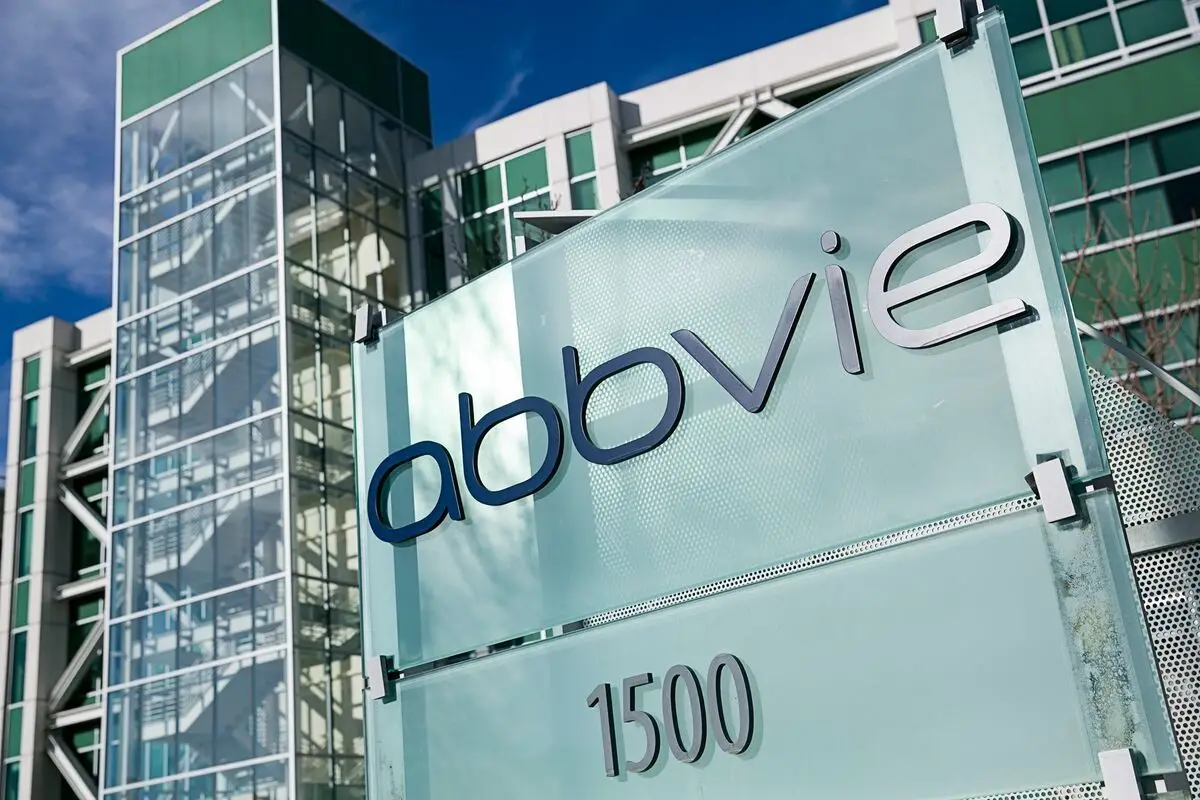Equities
AbbVie Q1 Beats with Drug Sales Surge, Raises 2024 EPS Outlook
AbbVie surpasses Q1 expectations with $1.369 billion net income, raises 2024 guidance amid Humira's decline and strategic diversification.
By Bill Bullington
ᐧ

Key Takeaway
- AbbVie beats Q1 expectations with net income of $1.369 billion and raises 2024 EPS guidance to $11.13-$11.33, despite Humira's sales drop.
- Sales of newer drugs Skyrizi and Rinvoq surge by 48% and 59%, offsetting a nearly 36% decline in Humira due to biosimilar competition.
- Strategic acquisition of ImmunoGen Inc. for $10.1 billion highlights AbbVie's focus on expanding its cancer therapy portfolio amidst market shifts.
Earnings and Guidance Lift
AbbVie Inc. reported first-quarter results that surpassed expectations, showcasing the company's resilience in the face of challenges. The pharmaceutical giant announced a net income of $1.369 billion, or 77 cents per share, a significant increase from $239 million, or 13 cents per share, in the same period last year. Adjusted earnings per share stood at $2.31, down from $2.46 a year earlier but still ahead of the FactSet consensus of $2.26. The company's revenues also saw a slight increase, totaling $12.31 billion, up 0.7% from a year earlier and surpassing the FactSet consensus of $11.93 billion. In response to these results, AbbVie raised its full-year profit guidance for 2024, now expecting adjusted earnings per share in the range of $11.13 to $11.33, up from the previous guidance of $10.97 to $11.17.
Humira's Decline and Portfolio Diversification
Despite the overall positive financial performance, sales of AbbVie's flagship autoimmune drug Humira continued to decline, falling nearly 36% to $2.27 billion in the quarter due to new biosimilar competition. However, this figure still exceeded the FactSet consensus of $2.221 billion. The total sales of AbbVie’s immunology products, including Humira, amounted to $5.371 billion, marking a 3.9% decrease from the previous year. To counterbalance Humira's decline, AbbVie has been focusing on its newer anti-inflammatory treatments, Skyrizi and Rinvoq, which saw sales jump 48% and 59% respectively, coming in above FactSet consensus estimates.
Strategic Acquisitions and Product Performance
AbbVie's strategic efforts to expand its product portfolio were highlighted by the $10.1 billion acquisition of ImmunoGen Inc., granting the company access to a promising class of cancer therapies. This move, described as "seamless" by executives, is part of AbbVie's broader strategy to replenish its pipeline of treatments as it navigates the post-Humira landscape. Additionally, the company reported varied performance across its other product lines. Sales of cancer drug Imbruvica fell 4.5% to $838 million, while Qulipta, a migraine treatment approved last year, saw a 98% increase in sales to $131 million. However, sales from AbbVie’s aesthetics business, including products like Botox and Juvederm, were down 4% to $1.249 billion.
Market Dynamics and Biosimilar Competition
The introduction of biosimilar versions of Humira has significantly impacted AbbVie's market dominance. Following the loss of patent protection, biosimilars have begun to capture a larger share of the market, with one biosimilar, Sandoz’s Hyrimoz, notably increasing its prescription share after being preferred by CVS Caremark. This shift represents a critical test of the generic competition's ability to lower drug prices in the U.S. market. Despite these challenges, AbbVie's strategic responses, including favorable rebates and the diversification of its product portfolio, have been aimed at mitigating the impact of biosimilar competition on its flagship product.
Finance GPT
beta







